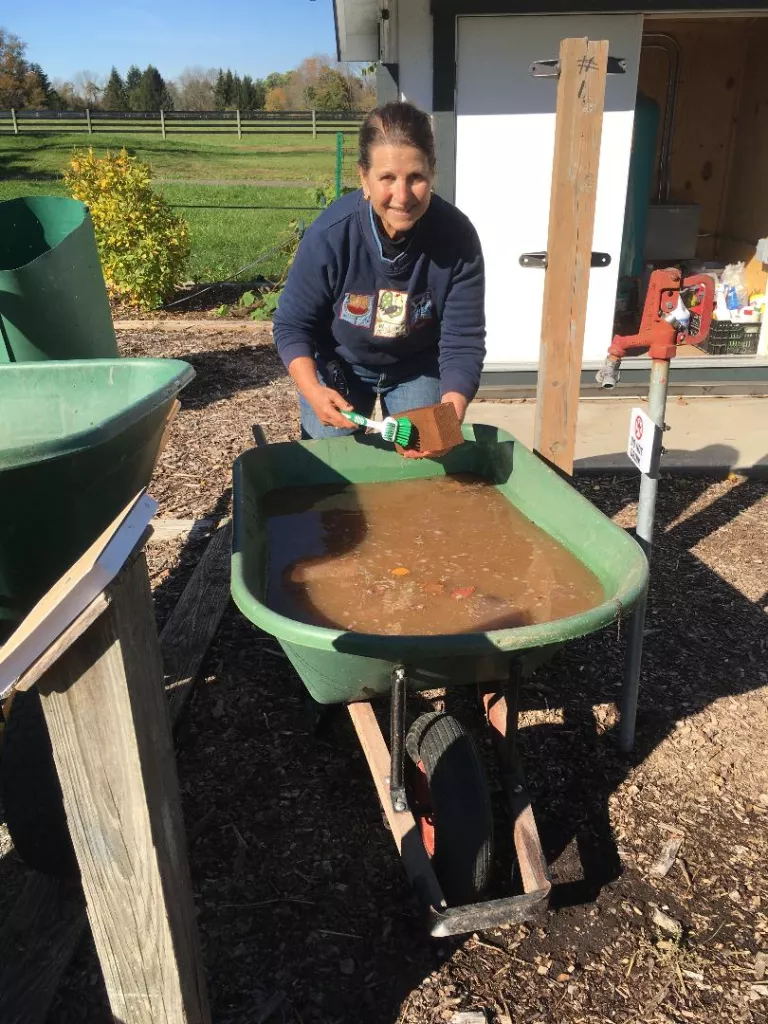By Joanne Pannone • Chair, Central Jersey Group
“Don’t Treat Your Soil Like Dirt” is a popular slogan for talks about outdoor management. It was the title of a lecture given by Ocean County Soil Conservation District about building a foundation for a Jersey-friendly garden (or yard) without chemicals—because your soil is the most important ingredient!
Soil is the foundation of a successful garden and yet it is the least understood of all elements in this effort. The physical and biological properties of soil work together to create nourishment for our plant life.
There is a delicate balance required. My neighbor applied too much fertilizer on his lawn and caused his young redbud tree to develop too much foliage. As a result, the overladen branches broke in a rainstorm, all because the tree didn’t need fertilizer!
A soil test is worth the cost when it comes to growing and maintaining healthy plants. Nutrients along with soil pH may change over time, frustrating your efforts to harvest a bountiful crop. Getting a soil test takes the guesswork out of fixing these nutritional issues. Why spend money on fertilizer or lime that isn’t needed? You will be happy with the knowledge gained from a soil test because you will know what adjustments if any, are needed.
Everything you put on your soil eventually ends up in the water table. Fertilizer, pesticides, pet waste, and stormwater runoff are harmful to waterbodies and their inhabitants. Because water is life, we should be landscaping and gardening for a healthy environment.
Water from rain and melting snow flows along hard surfaces before soaking into the ground. This water picks up pollution as it goes—lawn chemicals and oil spills included. This ends up in the streams and rivers and the water table—the water-saturated portion of the ground.
Fertilizer-fueled growth of algae and phytoplankton causes ecological imbalance by starving our waterways of oxygen, which is essential for fish. Mulch can reduce the need for fertilizer. It keeps soil temperature more even, protecting plant roots from violent swings in temperature and roots from drying out.
Using compost adds humus—a dark, crumbly, organic material formed from the partial decomposition of plant and animal matter—which suppresses weeds and warms the soil and can be used throughout the season.
Grass clippings add nutrients and nitrogen, and leaves add nutrients and act as winter cover. Avoid using peat moss, as harvesting it releases carbon and destroys habitat. Wood chips steal the nitrogen from soil, leading to poor plant growth.
Above all, keep in mind that organic gardening doesn’t require fossil fuels.
Your county Master Gardeners (extension service) can help you with obtaining a soil test kit. Testing your soil allows you to garden with science-based decisions. We all need to work together for cleaner water and a healthy ecosystem. Happy Gardening!
Resources
Soil Testing Service: https://shorturl.at/2va4U
Master Gardeners: https://shorturl.at/fIrfM
